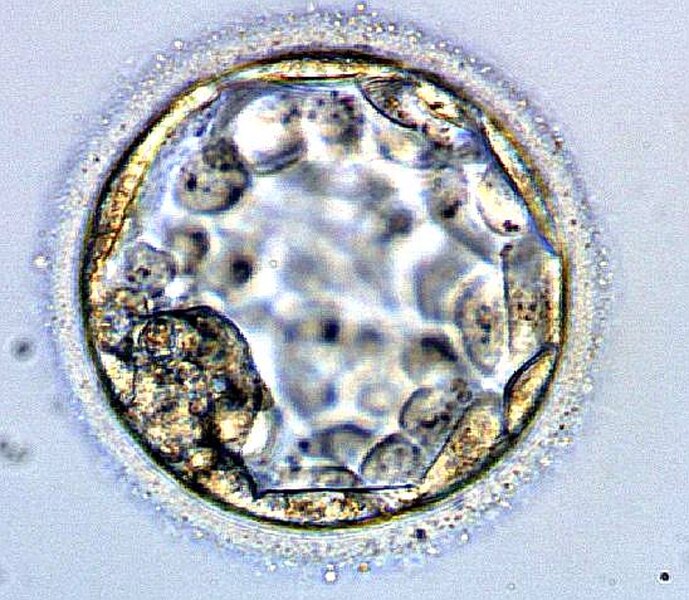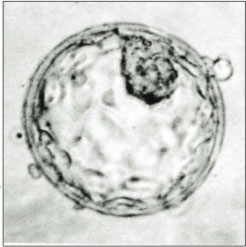 |
| I just think blastocysts are lovely. Img credit: Nina Sesina, Wikimedia Commons |
For a foundation, we don't prove that revelation is true, we receive it. We hold it with the same faculty that holds a Euclidean proof, but not because we have a demonstration of it. Rather, we hold revealed truths as gifts because the authority they carry is stronger than demonstration (Summa I.1.8). Our only job when it comes to studying and arguing about revealed truths is to defend parts of revelation based on other parts and show that the conclusions are cohesive and holy (for instance, defeat Arianianism by citing John 1:1,14, 1:30, and 8:58, or to point out that the Incarnation is a suitable medicine for our fallen condition for the reasons Athanasius cites). So I cannot demonstrate that sex is the only way which we can conceive, but I can show it in revelation and show that it is cohesive and holy.
To begin formally: reproduction involves creation and thus is a divine act. New embryos' souls are the only instance we still see of ex nihilo creation of a new substance. Like all creation, it is properly a divine act. It is God's to decide how His act proceeds, and He chooses to share it with us in a certain way. The way he shares it involves sex, so sex is like Him (it's life-giving, exclusive, and faithful as intended) and it's like us (surprisingly animal, but sublime). "Say," you might object, "how do we know that sex is the 'way' He chose? Maybe He just chose sperm egg fusion, in which case IUI and GIFT would be okay. Or maybe He just chose pronuclear fusion, in which case ICSI would be okay. How do you know He didn't choose something less inclusive?"
 |
| Img credit: Rugby 471, Wikimedia Commons |
Moreover, it is also cohesive with the rest of theology. This whole plan is like God: fiercely, uncompromisingly faithful, especially in its faithfulness to children. For this reason, neither marriage nor sex can be intentionally interrupted or replaced by a third party or nonsexual act. Sex looks so ordinary to us but it's on the level of angelic war--it's God's other way of making saints. Cloaked in normalcy, sex is actually a mechanisms of salvation history that is almost beyond our human capacity. This is why the Church seems so preoccupied with sex--it's hard to see what is right and wrong!--and why it seems to say "no" to so much. But this is why divorce, contraception, IVF, and surrogacy are wrong.
The final syllogism is a second-figure Cesare with a slightly complicated predicate in the minor premise.
No ART is a sexual act.
All conception must be through a sexual act.
Therefore, no conception can be through a sexual act.In addition, remember that there are other big concerns with IVF (embryo construction predisposes to seeing people as products/things rather than persons, embryo destruction, and embryo freezing), but you asked about the act itself, as if it were used in the best possible circumstances: a sacramentally married couple with good intent and who only desire embryos to be made who will be implanted and refuse to destroy embryos (success rates probably less than 40% with those caveats).


_feeding_tube_CRUK_341.svg/2000px-Diagram_showing_the_position_of_a_percutaneous_endoscopic_gastrostomy_(PEG)_feeding_tube_CRUK_341.svg.png)